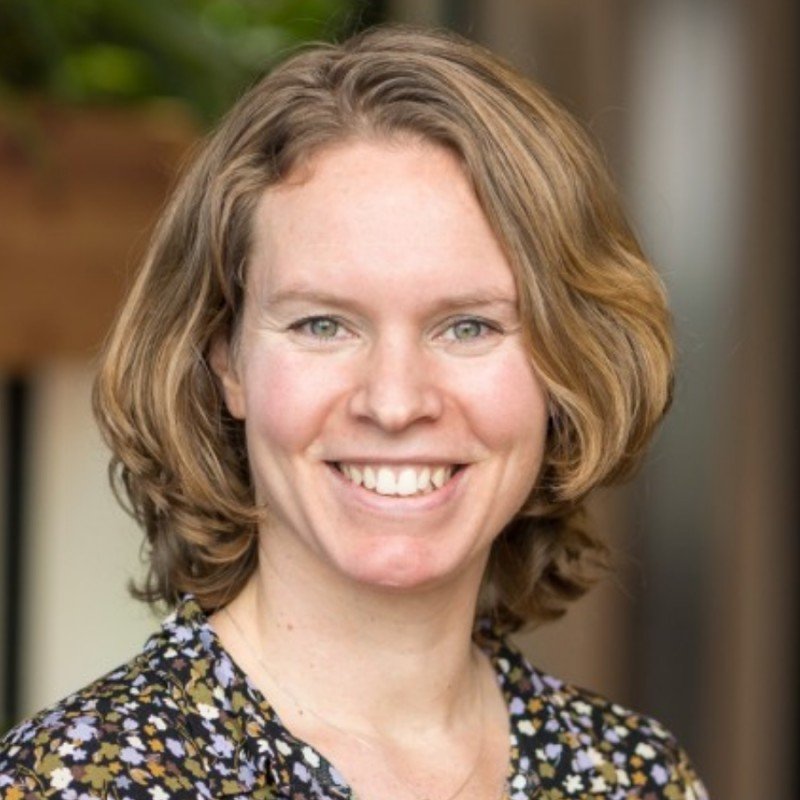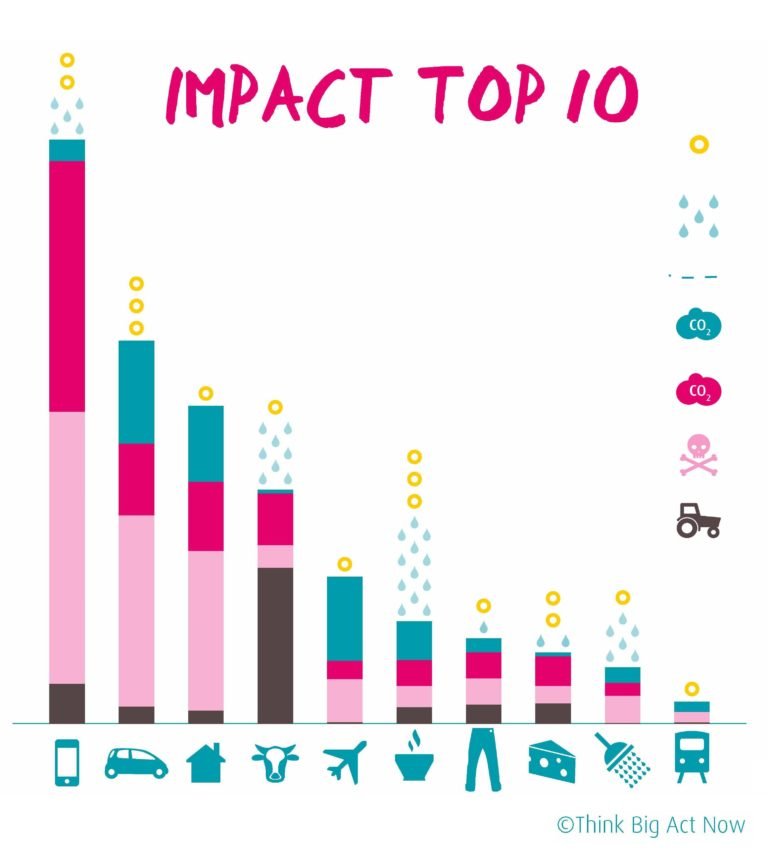By Janus Boye
Nina is UX Research Manager at Booking.com and also a climate coach
Worried about climate change? Not sure what to do, and not sure how to speak with friends, family and colleagues about it?
Talking about climate change and personal choices can sometimes lead to challenging discussions.
In a recent member’s call we heard from Nina Horstra, Climate Coach and UX Research Manager at Booking.com in the Netherlands. At work she focuses on the topics of sustainability and accessibility. In her spare time, she has completed a training program to be a certified climate coach.
We covered insights on living a sustainable life, guilty pleasures, and how to take others along on the journey. There were also a few practical tips that you can apply in your day to day life and in conversations, but we started our wonderful journey somewhere else.
How do you feel about 7 wonders of the world in less than 7 days?
Nina opened by the call by sharing the story of British traveller, author and motivational speaker Jamie McDonald, who recently journeyed to nine countries on four continents in less than a week to set a new Guinness World Record for the fastest time to visit the new Seven Wonders of the World.
This story received widespread news coverage, including this piece on USA Today: Seven world wonders in less than a week: Man sees The Great Wall, Taj Mahal and more to set new record. To quote from the article:
“Overall, McDonald took 13 flights, 16 taxi rides, nine buses, four trains, and one toboggan, covering a total of 22,856 miles, to complete his trip”
Nina then asked us the question: How does this make you feel?
Think about it for a few seconds - that’s what Nina asked us to do in the call.
She then shared some of the mostly positive comments on Instagram with words like inspirational and amazing frequently used. There were also a few who were less impressed with comments like these:
How much damage to our planet for your ego?
What is the value of this record?
What’s the carbon footprint?
Why on earth would you do such a thing? What are the values you promote?
Nina explained how her emotions were mixed and she used these 7 emojis to most appropriately describe it.
Let’s have a conversation about the climate
Nina then told us about KlimaatGesprekken, a Dutch foundation set up in 2016 as a local chapter of the UK-based Carbon Conversations that date back to 2006.
Based on the powerful principles of hope, humour and actionability today they have over 400 climate coaches in the Netherlands alone. The goal of each coach is to help make climate friendly choices more concrete by drawing on insights from psychology on how to change and how to communicate.
Climate coaches facilitate a series of 6 workshops to empower people to:
Make more climate friendly decisions to reduce their footprint
Increase handprint: Increasing your impact on others. Help to have effective conversations with others
The workshop themes are
You and climate change
Housing & Energy
Food
Travel
Consumption
Conversations about climate change
As you’ve probably already experienced, the climate discussion is polarised. Before you know it, you are seen as a climate activist. To help us, Nina then turned to more about how to actually have an effective conversation on the topic.
Climate change can be overwhelming
Even the best climate conversations can sometimes drown in numbers, but actually Nina only shared two numbers in her presentations. Citing Dutch research from 2021, this was the first one:
74% of Dutch people are very concerned about climate change
The other number she shared was:
13% of Dutch people take action on climate change
The problem is a familiar one: People want to change, but don’t translate intentions into action. Or in other words as Nina said:
“With complex issues people prefer to imitate the ostrich”
At times you can feel alone and thinking deeply about the climate can conflict with your own identity and values.
To make it quite specific, Nina turned to climate dilemma’s, including climate guilty pleasures such as the love for chocolate, skiing or flying. She cited the book Hidden Impact to open our eyes on where our real big impact probably is (hint: it’s mostly on the other side of the world).
As shown on the graph, smartphones and cars is the big culprit, while flying is ‘only’ number 5. These figures are based on the Netherlands. For more, see the Think Big Act Now website.
In closing, Nina shared some more advice to help you get started with the conversation.
What’s the most important thing to do in climate conversations?
To quote Nina:
Listening is by far the most important. Listen and ask questions. Don’t judge.
She shared her response to the world travellers mentioned initially and we used that as an example:
While I love travelling, the mix of emotions that your trip has triggered in me is almost worth an entry in the Guinness book of records itself.
What did you like the most about your trip? Anything you would change next time?
@travelport, @climeworks - I’m curious to see how you calculated the total of 2500 kg of CO2. The sustainabletravel.org website tells me that the Rome - Rio flight is already 2.56 tons one way
If you look closely at Nina’s response, you’ll find that besides listening and asking questions, Nina also covered a few other recommended things to do in climate conversation:
Listen: Empathise, accept, offer support, don’t judge
Speak from your heart: Express what you feel, notice your own responses, reflect
Understand ambivalence: The love of travelling. Accept that we all have mixed feelings and struggle with our inner conflicts
Choose the right timing: When is a good time to respond
Roll with resistance. Focus on feelings and find a new angle if you hit a brick wall, like when Nina cites Rome - Rio.
Don’t expect instant change: That’s why she asked what he liked the most. Work through the complex feelings so that change becomes permanent.
Nourish your creativity. The connection to the Guinness book of records. Take care of yourself and seek support
Learn more about climate change and sustainability
Interested in reading more? We’ve written extensively about this topic during the past years. Here’s just a few posts to get started:
Climate change and carbon accounting in the cloud (February 2023)
Digital as enabler for sustainability (April 2023)
The conversation also continues in person in our peer groups and at our conferences. You can meet Nina in person in November, where she is one of the world-class speakers at the Boye Aarhus 23 conference.
You can also view the slides (PDF) from the call or even lean back and enjoy the entire recording below.



